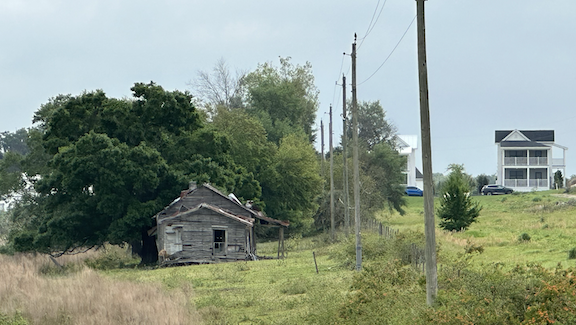Juneteenth commemorates the day in 1865 when 250,000 enslaved people in Texas, the last bastion for slavery during the final days of the Civil War, were declared free by the U.S. Army. The order decreed: “The freedmen are advised to remain quietly at their present homes and work for wages.” This Juneteenth, I remember my ancestors.
I’m a native of Florida, a lover of history, and always in pursuit of understanding my ancestry, which has direct roots in Africa. For nearly three decades, I’ve dedicated time to uncovering my family’s historical data—including its connection to Juneteenth.
I was one of the youth who didn’t attend preschool; instead, I had the privilege of spending my days at my grandparents’ home, playing and learning at an orange grove in Lake Alfred, Florida. This past March, I took my son to visit the “neighborhood” where I spent a majority of my childhood days. There’s an oak tree still standing on the corner of Lynchburg Rd. and Hwy 1792. It was the daily meeting place for my mom and grandfather. As I drove down Lynchburg Rd, the nostalgia was palpable. I could see myself as a three-year-old girl riding in the middle of the front seat of my grandfather’s pickup truck headed to a warm breakfast prepared by my late grandmother.
Once we reached Adam’s Farm Rd., the pavement turned to dirt. I called my brother to verify that I was in the right location. The orange trees that my grandfather planted were long gone. There were a few wooden homes still standing, but the lake was now surrounded by newer homes, gated fences, a wedding venue, and a “Private Property, No Trespassing” sign. Before I knew it, I could feel the tears trickling down my face.
A lady pulled up beside my car and asked if I needed anything, I simply said, “My grandfather worked on these grounds and I’m showing my son where I grew up.” I remembered all the times my grandfather would come home on the tractor for lunch while we played. We weren’t permitted to go near the big, white house located a mile from where the workers lived, nestled away on the top of the hill.
Then, it hit me like a ton of bricks: my grandfather was actually a sharecropper, and this was over 100 years after those 250,000 enslaved people were deemed free! While I sat on the property, I Googled how the land was being used. Today, it’s a place where individuals find joy, host events, and begin anew. But I wondered if they really knew what happened on this land. I couldn’t reconcile that the history on the website was not at all what I remembered. Could it be revisionist history, gentrification without justice, or simple ignorance?
Regardless, I chose to reflect on the insurmountable joy that land holds and how my late grandfather would be thrilled to see that his labor was not in vain. I stand on the shoulders of an immeasurable legacy, one of hard work, perseverance, and the hope that things would one day be better. As we celebrate Juneteenth today, I invite you to join me in gratitude for our ancestors who have paved the way for generations to come as we continue to learn what it means to be free!




